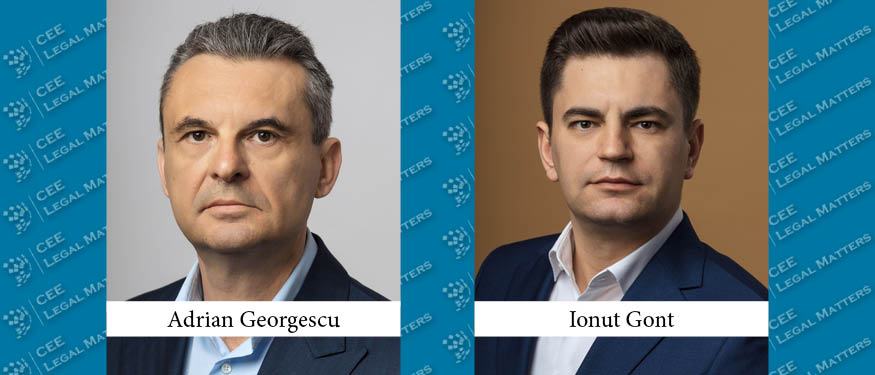As consumers conduct an ever-increasing amount of their shopping and banking on-line, the digitalization revolution is having a significant effect on both industries, and payment service providers – companies offering online services allowing merchants to accept electronic payments by, among other forms, credit cards or bank-based payments such as direct debit, bank transfer, and real-time bank transfer based on online banking – are working with both merchants and banks to facilitate their operations.
Schoenherr’s Prague office has developed a strong practice in the Czech Payment Services field in recent years, led prominently by Partner Vladimir Cizek. We reached out to Cizek for information about his team’s expertise in the sector.
CEELM: What’s Schoenherr’s experience in the Payment Services sector in the Czech Republic? What sort of deals and client matters has your team worked on in recent years, and what expertise/assistance are you able to offer clients?
V.C.: We have built a strong payment services practice and track record in recent years, mainly based on assistance we have provided to major merchants acquiring businesses’ disposals driven by the introduction in 2015 of the EU’s Interchange Fee Regulation (the “MIF Regulation”), which was designed to address varying and often excessive hidden interchange fees, and on providing day-to-day advice and counsel to clients on payment service matters.
CEELM: In general, what is the current state of compliance with the 2007 Payment Services Directive – designed to regulate payment services and payment service providers throughout the EU – as revised in 2015 by PSDII?
V.C.: In a nutshell, the PSDI has been duly implemented in the Czech Act on Payment Services, though naturally there are some exemptions. Generally, the PSDII will strengthen consumer rights, including extending the protections of consumers against fraud, abuse, and other payment problems. Also, the promotion of innovative mobile and Internet payment services may materially impact current bank operations. Third party providers will be allowed to manage customer finances by, for instance, procuring payments or analyzing spending habits and will gain access to customer data kept with the bank via an application program interface. In practice, these third-party providers will create an additional layer of services in bank infrastructure. This will have irreversible and a super-material impact on payment services as we see them today, and current service providers will need to rethink their commercial approach.
CEELM: In 2016 EVO Payments entered into a payment card acceptance alliance with Raiffeisenbank in the Czech Republic, and Worldline entered into a similar agreement with Komercni Banka – both of which your team worked on. Do you expect to see more such deals in 2017 and in the years to come, or are most necessary alliances already in place?
V.C.: Practically, these are one-off deals resulting from the MIF Regulation, as banks were not able to tackle lowered fees as required by the regulation, so they decided to dispose of their merchant-acquiring businesses to monoliners who process much greater numbers of transactions and thus can generally achieve better profitability. Alliances have been formed, and now we may see a phase of merchant migration – that is, merchants being switched from one original operating platform to the operating platform of the alliance partner. This will also have an impact on contractual arrangements in some cases. Alternatively, some banks have decided to in-source merchant acquiring (within their groups).
CEELM: What were the more challenging aspects of the Raiffeisenbank/EVO and Komercni Banka/Worldline deals?
V.C.: On the Raiffeisenbank//EVO deal we had to combine knowledge of traditional M&A with substantial add-ons concerning Payment Services regulation (for instance, issues related to licensing regimes, transfers of existing customer contracts without “wet” signatures, clearance from the Czech National Bank, the legal implications of asset deals needing to be closed all at once, and so on). Ultimately, the regulatory/payment services element played a more important role than the M&A part.
On KB/Worldline, we provided assistance specifically for the transfer of the client portfolio to the JV entity and contemplated post-closing migration; again, M&A was not core, but we saw that the parties were not really thinking through such relevant matters as transferred enterprise determination, liability issues, consideration of BINs/ICAs’ transfers within card schemes, problems with the merchant portfolio transfer, and so on.
All in all, what we tested here as pioneers were two things: (i) introducing third-party merchant contracts (a JV entity without a payment institution license plus a JV partner entity with a payment institution license providing services on a cross-border basis); and (ii) finding a solution for an asset deal involving the transfer of (part of) an enterprise otherwise requiring a submission to registration with a commercial register (here, by having a public notary make a remote on-line submission in real time). Essentially, we introduced a three-party merchant contract model based on the opt-out rule under the PSD (i.e., adding one more party without needing to re-create the entire contractual package). Also, since each transaction involved transferring part of the enterprise we developed a legal route that allowed us to instantly achieve legal effect while still complying with laws providing that transfers of parts of enterprise to parties registered as entrepreneurs in the Czech Commercial Register are effective only when handover protocols are lodged in the acquirer’s Collection of Deeds. This allowed us to tie closing to a specific moment without needing to rely on a court official submitting the document into the Collection of Deeds; this tool can be used in any transfer of part of enterprise.
By Vladimir Cizek, Partner, Schoenherr Prague
This Article was originally published in Issue 4.5 of the CEE Legal Matters Magazine. If you would like to receive a hard copy of the magazine, you can subscribe here.















